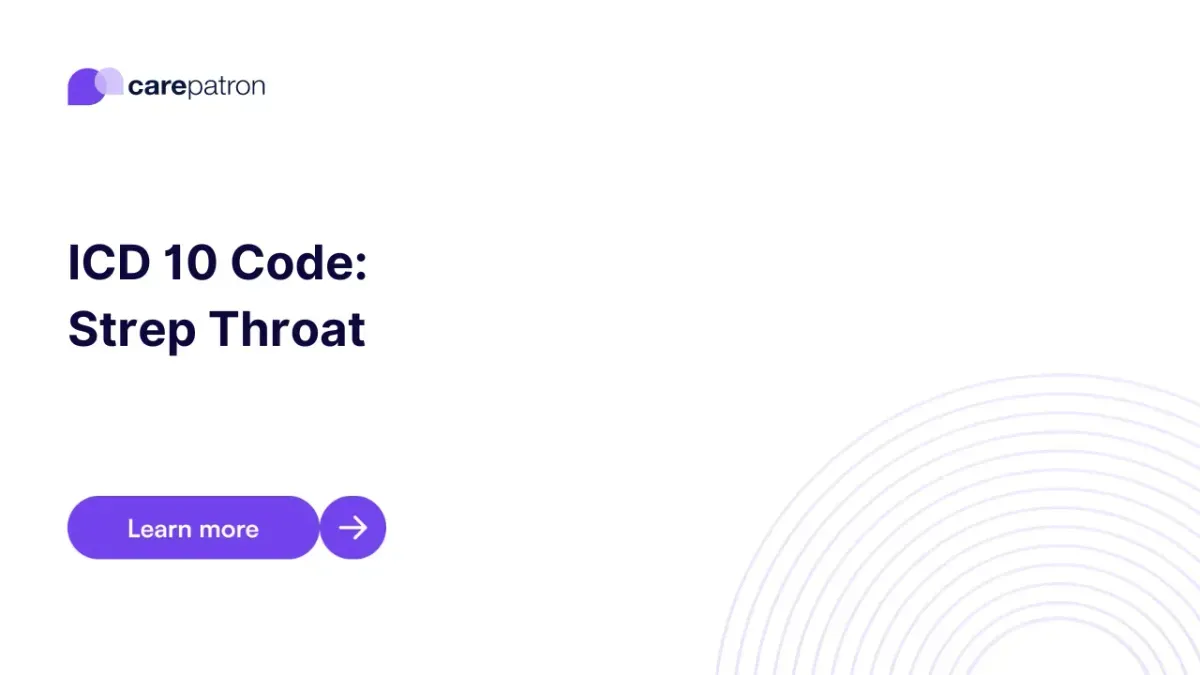
Strep Throat ICD-10-CM Codes
Learn about the strep throat ICD-10-CM codes you can use through this guide.
Use Code
Commonly asked questions
Strep throat is typically diagnosed through a rapid strep test or a throat culture, where a swab is taken from the back of the throat to test for streptococcal bacteria.
Treatment for strep throat usually involves antibiotics like penicillin or amoxicillin to kill the bacteria. Over-the-counter pain relievers may also be used to manage symptoms.
Strep throat is highly contagious and can spread through respiratory droplets from coughing, sneezing, or close contact with an infected person. It's essential to practice good hygiene to prevent the spread of the infection.
EHR and practice management software
Get started for free
*No credit card required
Free
$0/usd
Unlimited clients
Telehealth
1GB of storage
Client portal text
Automated billing and online payments
